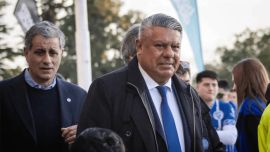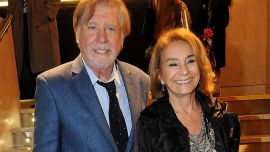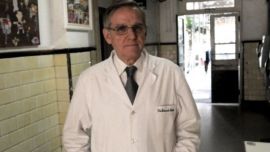Henry Kissinger, whose very name is synonymous with US diplomacy, turns 100 Saturday fêted by the United States’ elite as others seethe that the ruthless Cold Warrior has never faced accountability.
From opening the door to communist China to plotting an endgame to the Vietnam War to unapologetically backing dictators who were anti-Soviet, Kissinger wielded influence like few before or after him, serving as both top diplomat and security advisor to former US presidents Richard Nixon and Gerald Ford.
Instantly recognisable for his bookishly thick glasses and a sharp-witted monotone that never lost a touch of his native German, Kissinger was first an academic and his intellectual gifts are acknowledged begrudgingly even by some of his harshest critics.
Since leaving office in 1977, Kissinger's brand of realpolitik – the coldly cynical championing of power and national interests – has largely fallen out of favour as his successors preached moralism, but Kissinger himself has if anything enjoyed greater repute.
Ahead of his centennial, Kissinger blew candles on a cake at a celebratory luncheon at the Economic Club of New York, the city where he grew up after his Jewish family fled Nazi Germany.
Showing his worldview has not changed at the century mark, Kissinger cautioned for the United States to stay within the bounds of "vital interests," telling the guests, "We need to be always strong enough to resist any pressures."
Bucking the view of most US policymakers, Kissinger called for diplomacy with Russia on a ceasefire in Ukraine, arguing that Moscow has already suffered a strategic defeat.
'He has gotten away with it'
An unlikely playboy in 1970s Washington, Kissinger lives in an apartment on New York's Park Avenue. He has grown wealthy consulting businesses through his relationships in China – and has warned the United States against treating Beijing as a new Cold War-style adversary.
Long despised by the left, Kissinger has come into the good graces of the mainstream of the Democratic Party.
Hillary Clinton after serving as secretary of state called Kissinger "a friend" and said she "relied on his counsel," while the incumbent, Antony Blinken, teased Kissinger about his stylishness when the elder statesman attended a US State Department luncheon last year.
But for many, Kissinger was seen as an unindicted war criminal for his role in, among other events, expanding the Vietnam War to Cambodia and Laos, supporting military coups in Chile and Argentina, green-lighting Indonesia's bloody invasion of East Timor in 1975 and turning a blind eye to Pakistan's mass atrocities during Bangladesh's 1971 war of independence.
"To me, there's no doubt that his policies have caused hundreds of thousands of deaths and have destroyed democracy in many countries," said Reed Kalman Brody, a veteran human rights lawyer whose cases have included working with victims of Chilean dictator Augusto Pinochet. "I'm bewildered that he has gotten away with it.”
Kissinger has never faced serious legal jeopardy, with a US judge in 2004 throwing out a lawsuit related to the assassination of Chile's Army chief and the United States boycotting the International Criminal Court.
But Brody said there would be a strong legal case on East Timor where Kissinger not only approved the invasion but ensured US weapons kept flowing to Indonesia's military.
Brody also pointed to a recording, released over Kissinger's objections, in which Kissinger tells Nixon that the air force had orders in Cambodia to hit "anything that moves." Indiscriminate bombing of civilians is a war crime.
Late writer Christopher Hitchens published a book calling for Kissinger to be tried on grounds including tacitly backing Turkey's 1974 invasion of Cyprus.
Belief in larger goals
For Kissinger, most important was always the larger goal. On Cyprus, he prioritised solid relations with Turkey. On Bangladesh, Kissinger wanted to preserve Pakistan as a secret channel between the United States and China.
Muntassir Mamoon, a prominent history professor at the University of Dhaka, said that Kissinger "actively supported genocide in Bangladesh."
"I don't find any reason to praise Kissinger," he said, adding that the view was shared in many other countries including Vietnam.
Kissinger was controversially co-awarded the Nobel Peace Prize for negotiating a ceasefire in Vietnam alongside Hanoi's Le Duc Tho, who refused to accept the award.
"The irony is that he gets remembered for making peace, but all the ways he contributed to an escalation of the war not only in Vietnam but in Cambodia and Laos get lost," said Carolyn Eisenberg, a historian at Hofstra University who wrote a book on Kissinger.
Eisenberg also played down Kissinger's public image as "some Machiavelian genius," saying that transcripts showed how China's premier Zhou Enlai played him through flattery.
"Zhou Enlai knows that this guy has a huge ego problem," she said.
Brody, despite his criticism of Kissinger, acknowledged that he had a "degree of gravitas and sophistication" that both overshadowed most US policymakers and endeared many to him.
"Perhaps the reward of being on the side of the powerful is that you're only resented and hated by the weak."
Kissinger's record
Here are some of the major moments of Kissinger, who served both as US national security advisor and US secretary of state to presidents Richard Nixon and Gerald Ford:
China
Kissinger secretly flew to Beijing in July 1971 on a mission to establish relations with communist China, setting the stage for a landmark visit by Nixon who sought both to shake up the Cold War and enlist help ending the Vietnam War. The US opening to then isolated Beijing contributed to China's rise to become a manufacturing powerhouse and the world's largest economy after the United States. Since leaving office, Kissinger has grown wealthy advising businesses on China – and has warned against the hawkish turn in US policy.
Vietnam
Leading Nixon's efforts to end "with honor" the disastrous US war in Vietnam, Kissinger secretly ordered bombings in neighbouring Cambodia and Laos in hopes of cutting off Hanoi's supply lines. Some historians estimate that hundreds of thousands of civilians died. Kissinger reached a ceasefire in Vietnam in January 1973 through negotiations in Paris and was controversially co-awarded the Nobel Peace Prize, which Hanoi's Le Duc Tho refused to accept. The US-allied government in Saigon fell more than two years later – with Kissinger believed to be seeking a "decent interval" after the Paris deal to minimise the appearance of a US loss.
Coups and dictatorships
Convinced that facing down the Soviet Union was the larger picture, Kissinger advocated the overthrow of governments that tilted left, most notably in Chile and Argentina. In a declassified memo that showed his cold calculations, Kissinger said that Chile's socialist president, Salvador Allende, offered an "insidious" model by showing that a leftist elected government could work. Allende committed suicide as troops took over in a CIA-backed coup.
Invasions
Kissinger also showed no reluctance in backing invasions when he saw a larger US interest. When Pakistan served as a secret intermediary on China, he offered diplomatic cover to Islamabad as it waged a campaign of killings and mass rape in East Pakistan, which won independence as Bangladesh. Kissinger gave an explicit green light to close Cold War ally Indonesia as it seized East Timor, beginning a brutal 24-year occupation. Kissinger also tacitly supported Turkey as it seized one-third of Cyprus, seeking strong relations with the strategically placed country and perceived balance in its rivalry with fellow NATO member Greece. Kissinger also led covert US involvement in Angola's civil war to counter Soviet and Cuban allies.
Middle East
Kissinger devoted much of his time to the Middle East and organised a massive airlift, Operation Nickel Grass, to resupply ally Israel with weapons after Arab states launched a surprise attack on the Jewish holiday of Yom Kippur in 1973. Kissinger would later negotiate in minute detail with Israel, Egypt and Syria as he came to define "shuttle diplomacy." Effectively co-opting Moscow's role, Kissinger transformed the relationship with Egypt, the most populous Arab country, which became a US security partner and aid recipient.
related news
by Shaun Tandon, AFP






















Comments